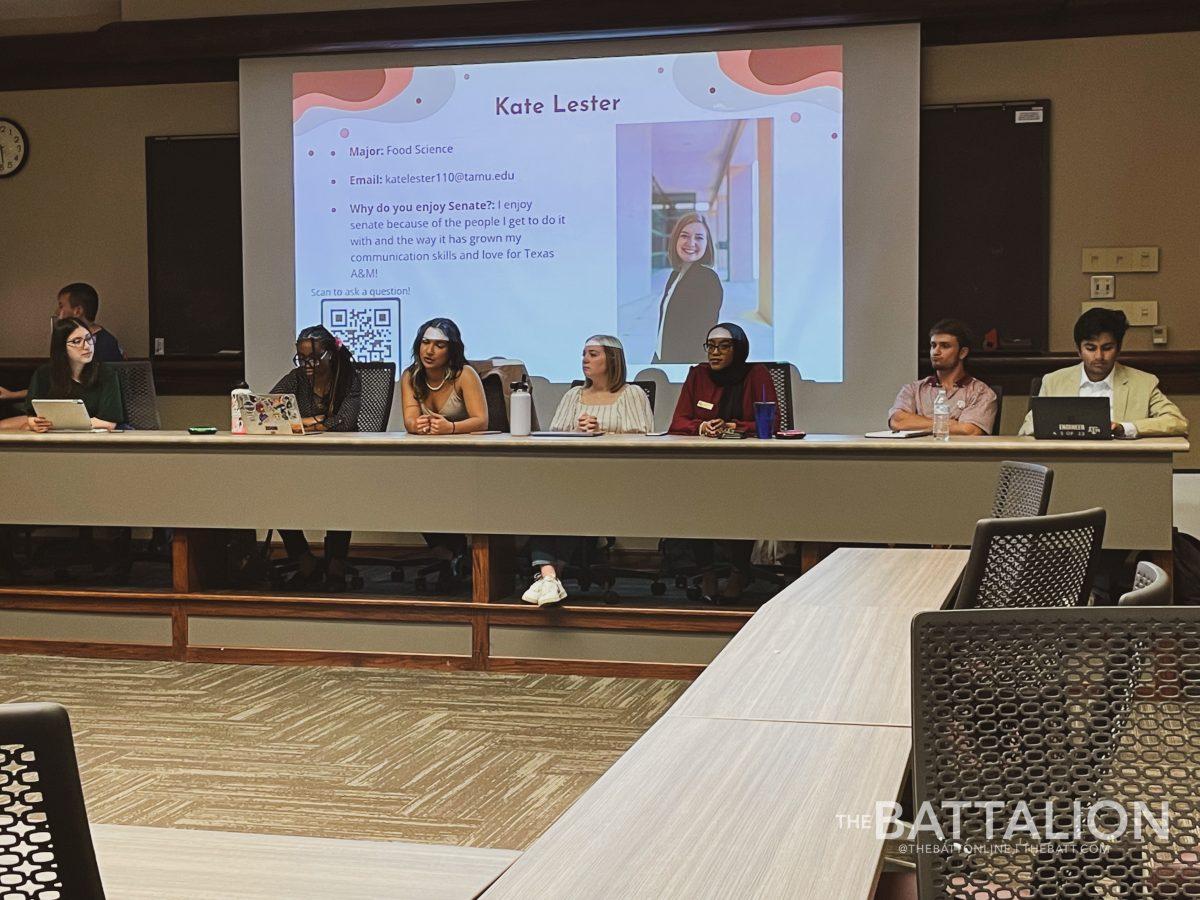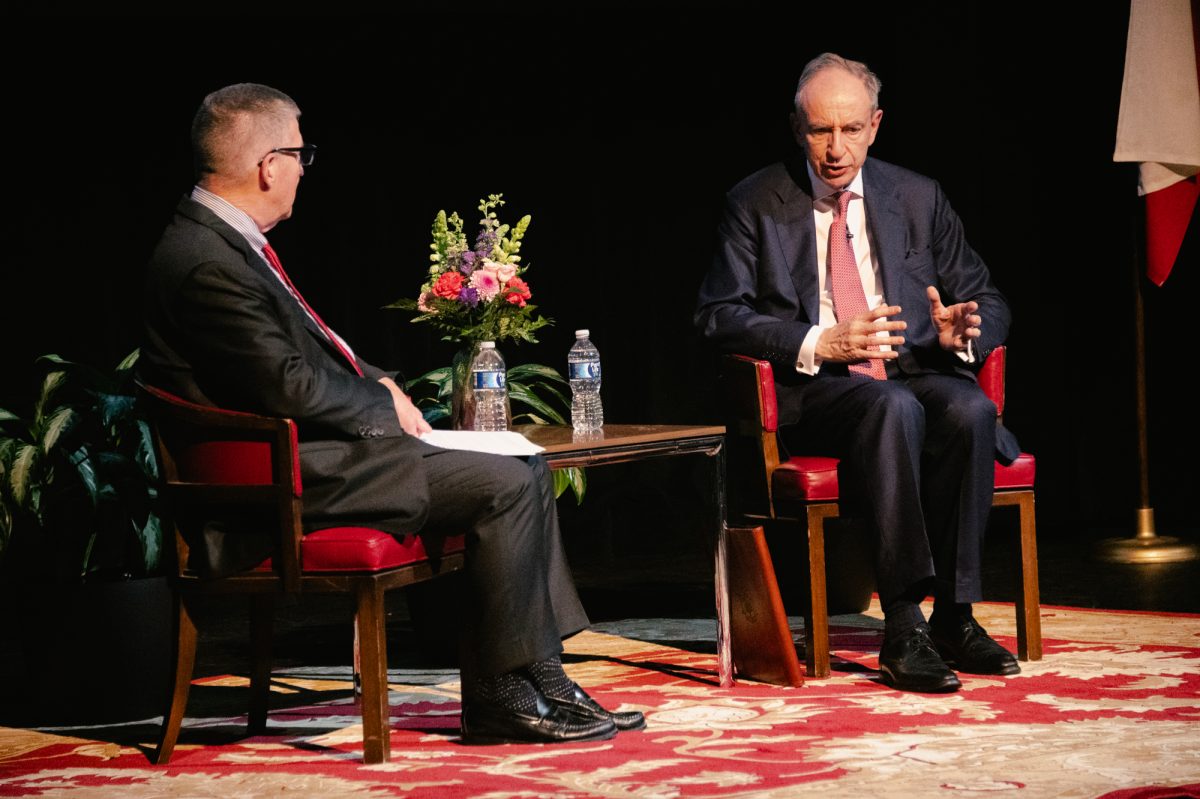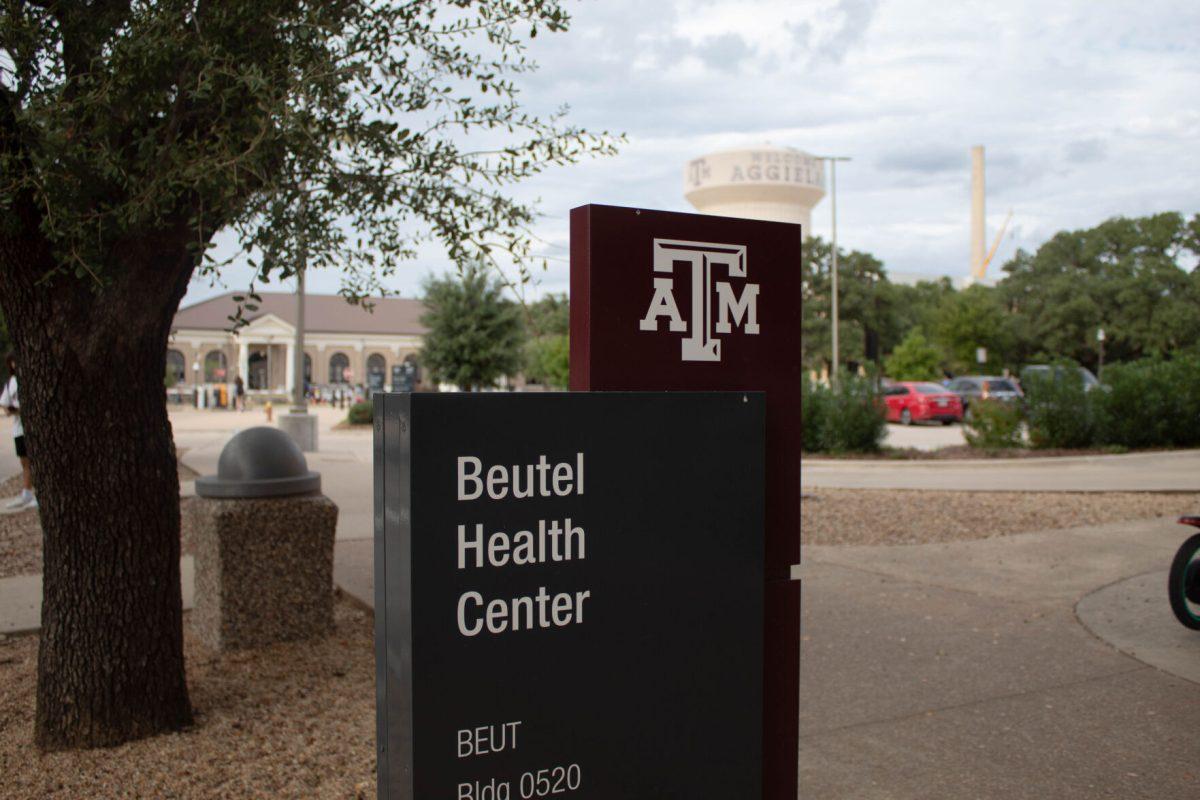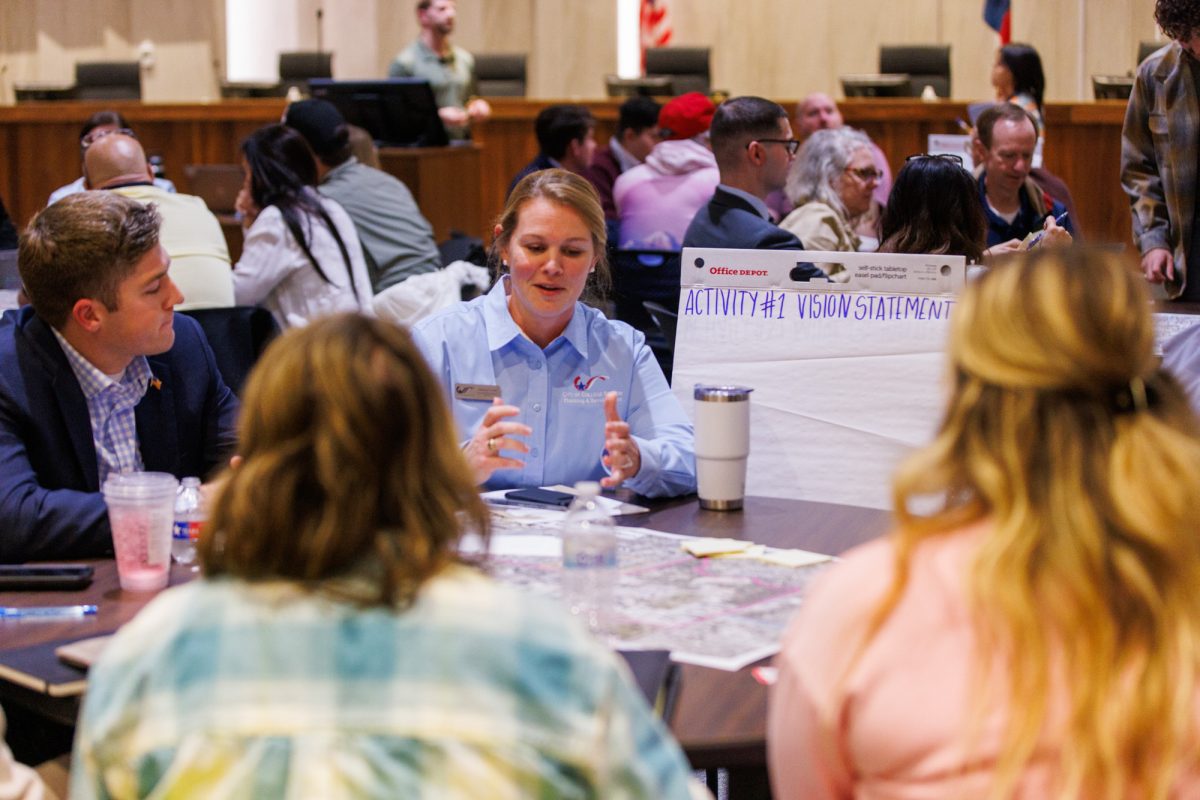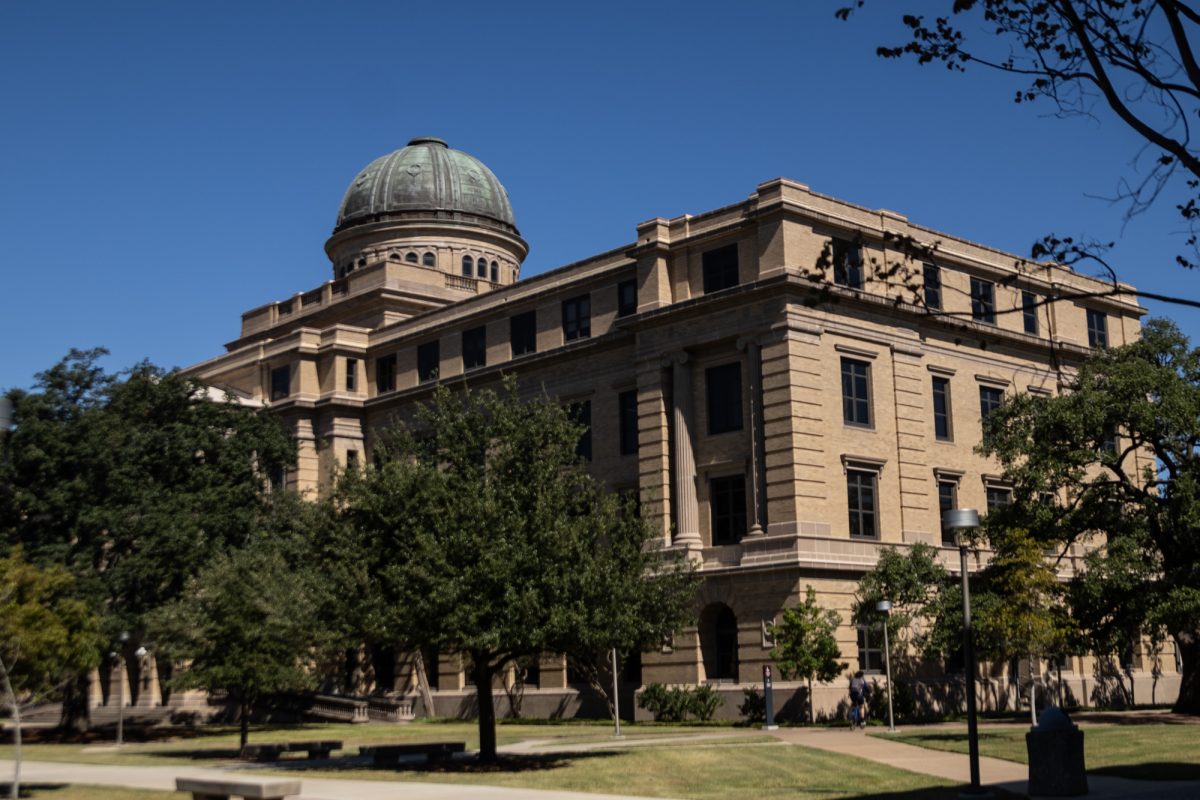The Texas A&M Student Senate held a town hall on Monday, March 28, allowing for students to talk directly to their elected representatives about issues they have on campus. This event highlighted a new push by the organization to reach out to the student body and is planned to be the first of many town halls over the next year.
The senators, including Senate Speaker Iman Ahmed and multiple senate committee chairs, fielded questions concerning administrative decisions regarding The Battalion, Fish Camp and Draggieland, ongoing university realignment and concerns about hate speech and wage inequality on campus.
Attendee Eric Martinez, a chemical engineering sophomore and member of the A&M chapter of the Young Democratic Socialists of America, or YDSA, asked multiple questions with an emphasis on issues of equality on campus.
Martinez said they have seen violations and abuses of the First Amendment on campus, citing an example of a student who verbally harassed another student during a YDSA meeting. Martinez said they took the issue to administration, but nothing was done, and they wanted to know if the Student Senate could do anything further.
Ahmed said it is difficult for any action to be taken in such a scenario because A&M is a public university.
“At the end of the day, we are a public institution,” Ahmed said. “That’s why it’s very difficult to get to where the university … can actually punish a student for certain actions unless it meets a certain threshold.”
Ahmed also said other forms of pressure can affect a student outside official administration channels, including increased pressure.
“Another thing is I think student pressure does a lot,” Ahmed said. “I’ve noticed that there have been students that have been caught on camera saying certain things and because of that, their other organizations have applied pressure to remove them from certain organizations or positions.”
With A&M’s new designation as a Hispanic Serving Institution by the Hispanic Association of Colleges and Universities and federal Department of Education, Martinez asked the Senate if there are any plans for the university to increase resources for Hispanic students.
Student Senator and management senior Yovanka Gonzalez said, as a member of the Student Body President task force under Natalie Parks, the group is working and steps are being made, but much of it is out of the Student Senate’s direct power.
“A lot of things are a little bit out of our control … but definitely steps are being made,” Gonzalez said. “[Student Senate] passed legislation stating that we do support a Latinx Center. There’s currently a task force under Natalie Parks’ presidency, and hopefully we’ll see that with Case Harris as well.”
Gonzalez’s statement highlighted a theme brought up by senators throughout the panel — the limited direct power the Student Senate has. The panelists stressed the most important things the Senate can do happen in committees or in discussions with administration, using their unique connections to advocate for students.
Martinez also asked if the Student Senate had done anything concerning The Rudder Association, a group of former students which claims to have influence over university personnel. Legislative Relations Committee chair Jessica Williams said there is legislation in the works by the Student Senate in regards to this.
Williams said she helped to write the Stakeholder Prioritization Resolution, brought forward at the March 9 Student Senate meeting, which was designed to voice concerns about the university decision-making process. This legislation, which did not mention any groups in particular, was voted to be tabled indefinitely in the special committee tasked with editing it.
Martinez also questioned the state of underpaid university workers and asked if there is something the Student Senate could do.
“Is there anything we can do working through [the] Student Senate to advocate for student workers who are getting paid $7.25 an hour … below a living wage?” Martinez asked. “Would you guys be able to create a committee underneath the diversity [and] inclusion commission that is composed solely of student workers so that they can advocate for themselves?”
Ahmed said this is something the Student Senate could work on in the upcoming 75th Session if there are students who voice their concerns. She also said, with the Chartwells contract coming to a close in August, this is a unique time when movement could be made in advocating for student-worker rights.
This answer highlighted a theme present throughout the panel: This is a unique time for the university and students have the opportunity to make changes. With academic realignment and a new administration under university President M. Katherine Banks, there is much at A&M that can be changed, and the senators at the panel urged students to voice their concerns and work with their representatives to make change for the good.




